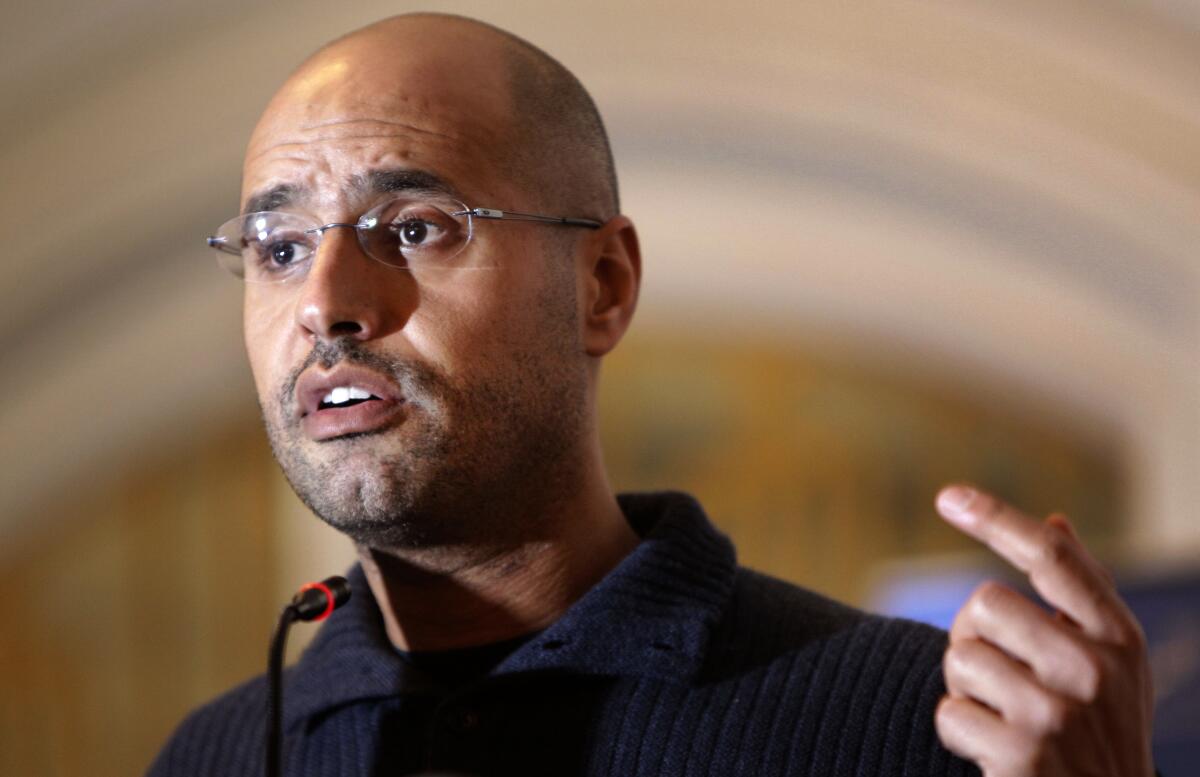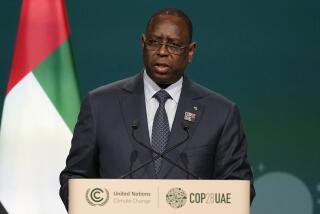Kadafi’s son disqualified from running for president of Libya

- Share via
BENGHAZI, Libya — Libya’s top electoral body said Wednesday that the son and onetime heir apparent of the late Libyan dictator Moammar Kadafi is disqualified from running in presidential elections that are to take place next month.
According to a list of barred candidates issued by the country’s High National Elections Committee, Seif Islam Kadafi is barred because of previous convictions against him. He can appeal the committee’s decision in court within the coming days.
Seif Islam was sentenced to death by a Tripoli court in 2015 for use of violence against protesters who were calling for his father to step down, but that ruling has since been called into question by Libya’s rival authorities. He is also wanted by the International Criminal Court on charges of crimes against humanity related to the 2011 uprising against his father.
Libya is set to hold the first round of its presidential vote on Dec. 24, after years of United Nations-led attempts to usher in a more democratic future and bring the country’s war to an end. After the overthrow and killing of Kadafi, oil-rich Libya spent most of the last decade split between rival governments — one based in the capital, Tripoli, and the other in the eastern part of the country. Each side in the civil war has also had the support of mercenaries and forces from Turkey, Russia and Syria and other regional powers.
The son of Libya’s former dictator submitted his candidacy papers in the southern town of Sabha, 400 miles south of Tripoli, on Nov. 14. It was the first time the 49-year-old, who earned a doctorate at the London School of Economics, had appeared in public in years.
He was captured by fighters in the town of Zintan late in 2011, the year when the popular uprising, backed by the North Atlantic Treaty Organization, toppled his father after more than 40 years in power. Moammar Kadafi was killed that same year in October amid the ensuing fighting that would turn into a civil war. The dictator’s son was released in June 2017.
The announcement of his possible candidacy has stirred controversy across the divided country, where a number of other high-profile candidates have also emerged in recent weeks.
Several controversial candidates came forward this month, including powerful military commander Khalifa Haftar and the country’s interim prime minister, Abdul Hamid Dbeibah.
The long-awaited vote still faces challenges, including unresolved issues over laws governing the elections and occasional infighting among armed groups. Other obstacles include the deep rift that remains between the country’s east and west, split for years by the war, and the presence of thousands of foreign fighters and troops.
More to Read
Sign up for Essential California
The most important California stories and recommendations in your inbox every morning.
You may occasionally receive promotional content from the Los Angeles Times.













